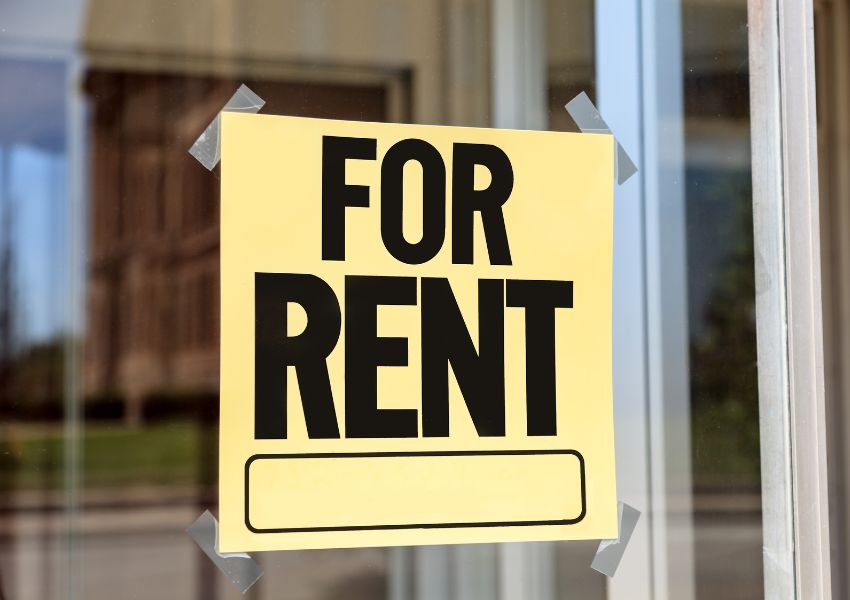Key Takeaways
- Rental Scams Harm Landlords as Much as Tenants – Even if owners don’t lose money directly, fraudulent listings can damage their reputation, create distrust among renters, and lead to longer vacancies and higher costs.
- Proactive Monitoring and Education are Essential – Landlords should regularly check for copied ads, watermark their listings, and educate tenants about red flags such as unrealistic pricing, high upfront fees, or pressure tactics.
- Property Managers Add a Layer of Protection – By handling tenant screening, monitoring fraudulent ads, and using secure marketing platforms, professional managers reduce landlords’ exposure to scams while providing credibility and local support.
The internet has transformed the rental market. With a few clicks, landlords can market units to a wider audience than ever before, cutting down advertising costs and reaching renters far beyond their local neighborhood. But this convenience has also opened the door to online rental scams.
Many landlords assume scams only affect renters. In reality, scams can damage owners, too. Fraudsters frequently copy legitimate ads, tricking renters into sending money, and in the process, they drag an unsuspecting landlord’s reputations down. This results in lost income and distrust that can linger long after the scam is exposed.
This guide by Kokopelli Real Estate aims to help landlords understand how these schemes work and how to respond when your business is targeted.
How Rental Scams Typically Play Out
Here’s how a rental scam could pay out:
1. Stolen Ads and Images
Most scammers don’t bother creating original listings.

Instead, they copy legitimate property photos and descriptions from online ads, reposting them on other platforms with small tweaks to rent prices and contact information to make the listing look new.
2. Too-Good-To-Be-True Offers
To lure prospective Grand Junction tenants in, they advertise rent that’s significantly below market value or claim the unit requires minimal paperwork like no credit checks or background screenings.
3. False Urgency and Payment Requests
Once a tenant shows interest, scammers apply pressure. They emphasize that “many people are inquiring” and demand a quick deposit or reservation fee to secure the unit. Payment is often requested through wire transfer or cash apps, leaving no option for recovery once the scam is revealed.
4. The Disappearing Act
After collecting money, the scammer vanishes or stalls communication until the renter realizes the truth. Some victims even show up at the property, only to discover the actual landlord had nothing to do with the arrangement.
5. The Fallout for Landlords
Although the actual landlord isn’t guilty, victims may feel deceived and spread negative word-of-mouth. As a result, your property looks suspicious to legitimate renters, and vacancies stretch longer than expected.
Why Landlords Can’t Ignore Rental Scams
Even if you never directly lose money to a scammer, the following indirect consequences are serious:
- Reputation Damage – Once your property becomes linked to a scam, future renters may hesitate to inquire.
- Extended Vacancies – Prospective tenants who hear rumors may steer clear, leaving your unit empty.
- Higher Costs – Longer turnover means more advertising, additional property maintenance, and lost rent.
Signs of a Rental Scam
Both landlords and tenants should stay vigilant.

Warning signs often include:
- Unrealistic Pricing – If the rent seems far below comparable units, it’s likely bait.
- No Tenant Screening – A refusal to screening tenants and check credit or rental history is highly unusual for legitimate landlords.
- Large “Reservation” Fees – Excessive upfront costs before even signing a lease should raise suspicion.
- Pressure Tactics – Being told to sign immediately without viewing the unit is a classic scam strategy.
Teaching tenants these red flags not only helps them avoid scams but also positions you as a trustworthy residential rental property owner.
How Renters Can Protect Themselves
Since tenants are often the first target, landlords can protect their own reputation by educating renters on safe practices. Encourage them to:
- Visit the Property in Person – Seeing the unit before sending money is the best safeguard.
- Confirm the Landlord’s Identity – Tenants should ensure they’re speaking to the property owner or authorized manager.
- Connect with Past Tenants if Possible – A quick conversation can verify legitimacy.
- Avoid Wire Transfers – Secure payments through checks or trusted digital platforms with clear receipts.
What Landlords Can Do to Stay Protected
As an owner, you can’t prevent scammers from trying, but you can minimize their impact by:
1. Monitoring Your Listings
Search regularly for your property online. Copycats often recycle photos and descriptions word-for-word.

Setting up Google alerts for your property address can help you spot fraudulent ads quickly.
2. Watermarking Your Listings
Consider watermarking photos with your company logo or website. While not foolproof, it makes stolen images less appealing to scammers.
3. Using Secure Platforms
List properties on trusted rental websites rather than obscure platforms where scams thrive. Established sites often have fraud detection tools in place.
4. Responding Quickly to Incidents
If you discover your ad has been copied, report it immediately to the platform. Inform prospective tenants that a scam is circulating and clarify where your official listings can be found.
5. Working with a Property Management Company
Property managers often have resources to track fraudulent ads, handle tenant concerns, and keep your marketing professional and secure. By outsourcing monitoring and communication, you reduce the risk of falling behind on scam prevention.
The Role of Property Managers in Scam Prevention
Property management companies add value through:
- Fraud Monitoring – Professional managers regularly track online ads and spot suspicious duplicates.
- Tenant Screening – Robust checks ensure renters are genuine, reducing vulnerability.
- Marketing Expertise – Managers use secure platforms and professional branding to make scams easier to identify.
- Day-to-Day Presence – Because managers are locally available, tenants can verify legitimacy by walking into an office or meeting staff in person.

Property managers also provide the usual benefits of maintenance coordination, financial reporting, and streamlined rent collection. For long-distance landlords especially, their presence reduces both the practical and reputational risks tied to scams.
Bottom Line
Rental scams can seriously hurt both tenants and landlords. Protect your business by monitoring listings, educating tenants, spotting red flags, and partnering with trusted property managers. For expert property management services, contact us today!
